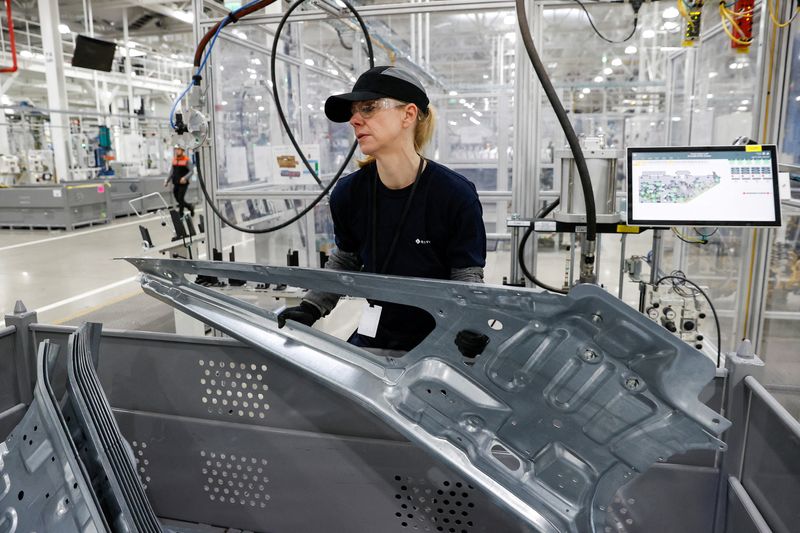WASHINGTON (Reuters) - Production at U.S. factories increased more than expected in April amid continued strong demand for motor vehicles and other goods, which should help to underpin manufacturing activity.
Manufacturing output increased 0.8% last month after a similar gain in March, the Federal Reserve said on Tuesday. Economists polled by Reuters had forecast factory production would gain 0.4%. Output jumped 5.8% compared to April 2021.
But manufacturing, which accounts for 12% of the economy, faces challenges from renewed supply chain bottlenecks because of Russia's invasion of Ukraine and China's zero-tolerance COVID-19 policy.
The Institute for Supply Management's index of national factory activity hit more than a 1-1/2-year low in April. A survey from the New York Fed on Monday showed factory activity in New York state fell in May for the third time this year.
The dollar, which has gained at least 2.7% against the currencies of the United States' main trade partners since the Fed started raising interest rates in March, could also hurt demand for exports and undercut manufacturing.
Production at auto plants increased 3.9% last month after accelerating 8.3% in March. Most durable goods industries posted gains, with only nonmetallic mineral products, electrical equipment, appliances and components, and furniture and related products recording losses.
April's rise in manufacturing output combined with a 1.6% increase in mining to lift industrial production 1.1%. That followed a 0.9% advance in March.
Production at mines is being boosted by higher crude oil prices, which have driven the cost of gasoline to record highs. Utilities production rebounded 2.4% after dipping 0.3% in March.
Capacity utilization for the manufacturing sector, a measure of how fully firms are using their resources, increased 0.6 percentage point to 79.2% in April - the highest level since April 2007. It is 1.1 percentage points above its long-run average.

Overall capacity use for the industrial sector climbed to 79.0% last month from 78.2% in March. It is 0.5 percentage points below its 1972-2021 average.
Officials at the Fed tend to look at capacity use measures for signals of how much "slack" remains in the economy - how far growth has room to run before it becomes inflationary.